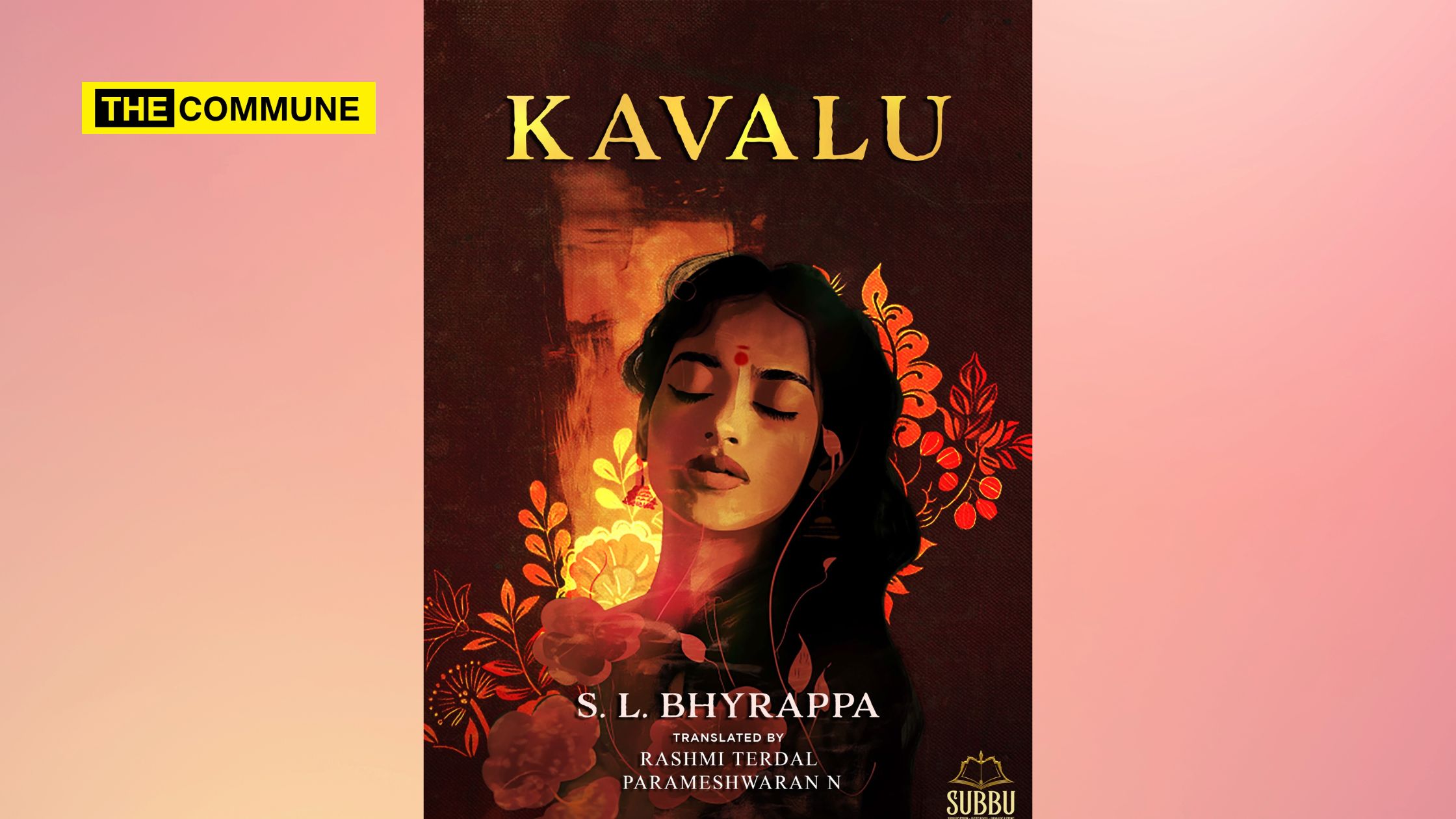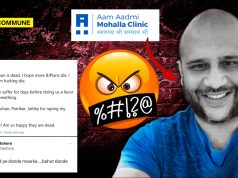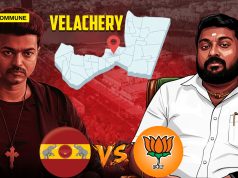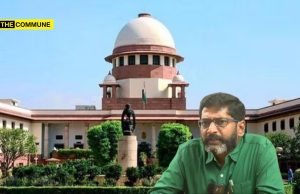
Kavalu or Divergent Paths as captured in the title of the English version, translated by Rashmi Terdal and Parameshwaran N, is a very poignant tale of modern society, reflecting on some of the most common issues pertinent to the times we live in. The original book was released in Kannada and had sold out like hotcakes in a matter of hours. Rated as one of the top 10 books of 2010, it shouldn’t be a surprise that this poignant tale by the master writer is highly sought after even now. The English version of the book is well done, taking S. L. Bhyrappa’s works to a wider audience.
Kavalu narrates multiple tales with overlapping storylines dealing with multiple facets of modern society, especially related to marriages, divorces, women’s liberation, and the legal intricacies thereof. The happenings are narrated by one of the central characters in each chapter, essentially presenting their perspectives.
Broadly, there are 4 major characters Jayakumar – Mangala and Vinay – Ila. The story captures their journey through the plots of life, as each one of them armed with their own preferences and self-convictions, make choices that have far-reaching and perhaps, life-altering ramifications. This is not limited to only these central characters, but also to some of the adjoining characters in the narrative.
This book is perhaps one of the boldest books from the revered author that I have read in some time. Set in the post-liberalisation Indian period with an affluent middle class with perhaps modern/foreign education, the author presents an interesting slice of reality as he describes the potential weaponisation of sex or physical intimacy to achieve one’s materialistic goals, as a psychological weapon to demoralise or demonise a man, as a justification or rather a true representation of women’s liberalisation. Weaving these complex concepts into the narratives that run parallel to each other, the author’s genius needs to be understood in the underlying message.
Taking a critical view of some of the ills of modern society where liberalisation is used as a garb by some, the author leaves no room for confusion and leaves the reader to interpret the harsh reality at its face value. The book also addresses some of the other common challenges of a society grappling with change, like Dowry. However, even though the metaphysical concepts are not highlighted in bold, their presence is undeniable.
Dowry as a concept links 2 characters linked to Jayakumar and in an interesting twist of fate, acts as a rejoinder of Karma theory. One can’t escape from the fruits of Karma over the life.
I will not delve into the story but would like to highlight some of the key messages from the narrative. In the first 100 pages of the book, the author exposes the user to the world of women’s liberalisation, Sigmund Freud as a sign of modernity, lesbian relationships, sex as a control tool, etc. Early on in the 2nd chapter, one of the statements shakes the inners of readers where a father is accused of satisfying his pervert desires, just because he hugs his differently-abled daughter. It definitely makes one think about the way relationships have evolved in the modern context. When a daughter transitions from a young girl to a wonderful woman, does the father lose all his rights over her? Can’t he express his love by hugging his daughter? Should society view everything through the lens of perversion? Quite serious, probing questions!!
One of the other standout phrases from the book serves as a reminder of the deep influence of modernity on some of the most core areas of life.
“Is your desire to have a child borne out of your love for the child, or do you want to be a social revolutionary?”. This concept of social reformers being the ones to go against every norm of the centuries-old society is a recurring theme throughout the book. While the author doesn’t preach any specific angle, the book does make the readers introspect deeply on the true meanings of modernity / modern outlook, the pros and perhaps limitations in life.
Hypocrisy is another undercurrent that is on ample display throughout the book. Arguments are made to establish gender equality at one’s own convenience. A case in point is the statements by Mangala justifying her mother’s stay at her home while blaming her spouse for being a male chauvinist.
The same hypocrisy is on ample display during the interactions between Ila and Doreraja, where the latter questions the objectives of Ila when she tries to pressure him to legitimise their relationship. While these are straightforward instances, there are many subtle examples where the reader could feel shocked by the behaviour of a few characters. For example, the use of activism to pressurise the industrialist to a marriage with the sole intention of the same being a true feminist accomplishment is interesting. All along the book, the esteemed lawyers have their own views and use every opportunity to further their own agenda, while never considering the other perspectives. The harsh reality of life!!!
The characters are etched out with great detail and a strong internal framework. They do get introspective about their actions at various junctures. For example, Jayakumar’s reflections on the sacredness of sexual relationships are another case in point, where he fights multiple battles internally about his subdued sexual urges vs the memory of his loving wife.
The book has some very interesting philosophical tenets embedded in the conversations of the characters. One of the characters, a lady of the evening, asks one of the central characters if the latter considers her work as “low, immoral, and sinful?”. An innocuous statement, but with very deep consequences. It challenges the reader to reflect upon their own internal value framework and how one views the various professions of the world, especially the judging aspect of the same. Do any have the moral high ground to condescendingly look down upon another’s choice of profession? These questions continue to haunt the reader as they journey through the book.
Extending the concept of women’s liberalisation with modernity, the author also introduces the reader to the prevailing colonial hangover that persists in society. Self-promotion and selfish motives outweigh the underlying objectives of establishing the long-forgotten colonial superiority. The fact that one of the central characters considers this to be perfectly normal is a perfect mirror to us.
While the central character is considered to be Jayakumar and to some extent Vinay Chandra, I find that the main theme of the book is about women and their roles in society, along with some of the most pertinent and perhaps important questions of life. I also feel that the maverick author chose to describe the various facets of “Shadripus“ – 6 vices of life through various characters of the book. While Vyjayanthi shines as the true jewel of the book and perhaps is the best example of women’s empowerment and upliftment, the other characters serve as a stark reminder of what we shouldn’t be. Rajamma’s anger (Krodha) leads to her to jail. While she does make amends later in life, she is still representative of what one could face in life.
Mangala is a very interesting character whose greed (lobha) and ego of being a modern woman (mada) changes many lives irreversibly including her own. Using her sexuality and lust (kama) as a tool, she isn’t shy of any steps to achieve her own goal, no matter how hypocritical it is. In one of the junctures of the book, her conscience does ask probing questions but is silenced due to the overpowering nature of her personality.
Dr. Ila, coincidentally Mangala’s teacher and another champion of women’s liberation, is also a combination of the aforementioned attributes along with jealousy (matsarya). Driven solely by her individual desires, she doesn’t even feel disturbed that her teenage daughter learns about her affair, while not agreeing to divorce her legally wedded husband. Her choices at some junctures could come across as deeply disturbing.
One of the standout features of this book is that all characters are shown to be made of various shades of grey. Except for Vyjayanti and Vatsala, everyone else is shown to have their own chinks in their characters, some larger than others. The conflicts, debates, and challenges faced by every one of the characters are etched out beautifully. As one concludes the book, they are left with some really haunting, germane questions.
What is the true meaning of women’s liberation? Is sexual freedom the only meaning of women’s liberation? Beyond these civilisational queries, there is one statement that is so wonderfully interlaced within the narrative: “Love is not just about words; those who struggle to express themselves often have the deepest feelings”.
Hard-hitting reality check of life. MUST READ.
Gee Vee is an engineer and avid fan of itihasas, puranas and books.
Subscribe to our channels on Telegram, WhatsApp, and Instagram and get the best stories of the day delivered to you personally.




